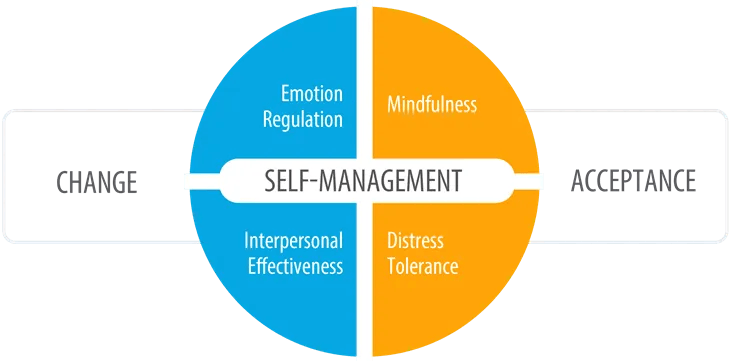Dialectical Behaviour Therapy (DBT)
What is DBT
Dialectical behaviour therapy is a variation of Cognitive Behavioural Therapy. It combines the standard CBT skills with mindfulness practice . The main goal of DBT is to provide to clients some practical strategies for dealing with their uncontrolled emotional and behavioural difficulties. It was initially developed for clients with borderline personality disorder but it is now used for a number of clinical presentations.
DBT focuses on the following functions:
- Mindfulness: sensing, awareness, bodily/mind presence in the 'here - and - now'
- Interpersonal Connections/Effectiveness
- Emotion Regulation: identifying and acknowledging feeling/emotions
- Distress Tolerance and Mastery: experiencing rather than avoiding situations
What to Expect
In DBT sessions, the therapist will work with the client to:
- Reduce high risk suicidal behaviours
- Reduce self-sabotaging behaviours which often disrupts therapeutic progress
- Reduce behaviours that disrupts their everyday quality of life
- identify and modify post-traumatic stress responses
- Encourage and emphasize self-respect
- Provide coping mechanisms/strategies for everyday challenges
Problems for DBT
- Borderline Personality Disorder
- Self-harm: cutting, constant scratching and picking, banging or hitting parts of your body, burning yourself, forced feeding, drinking, intentionally engaging in highly risky behaviour
- Addictions e.g. sex, Gambling, drugs or alcohol
- Abuses: sex, emotional, physical verbal





